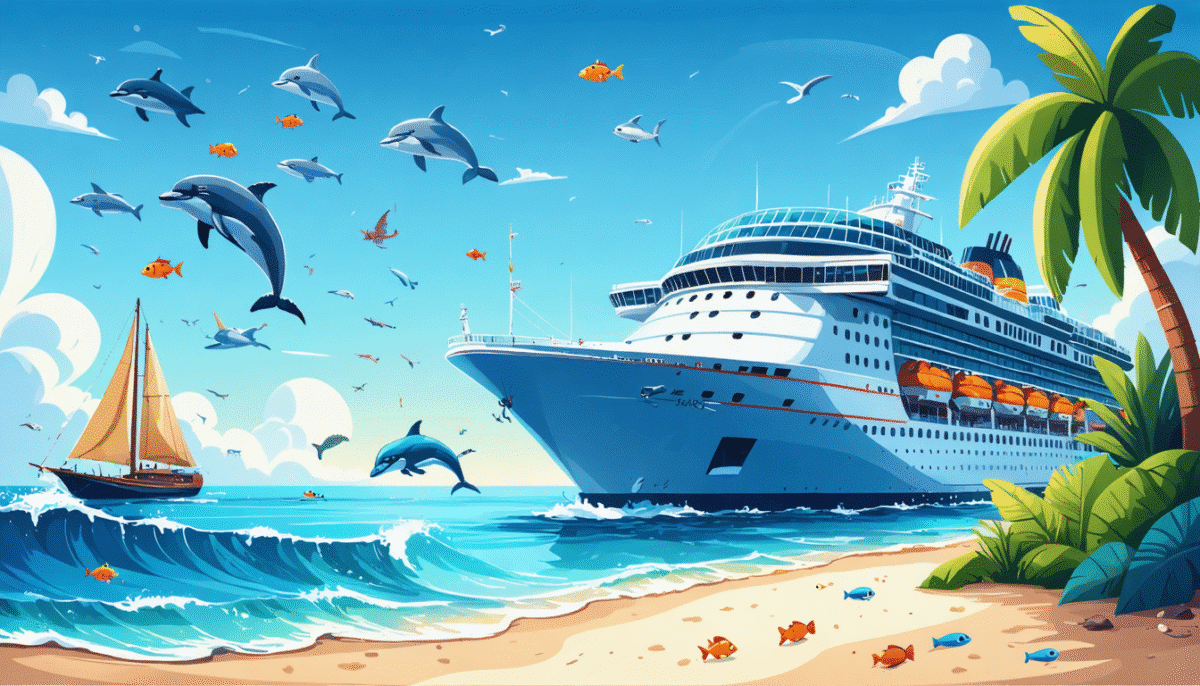International attention is focused on a travel warning issued by American authorities regarding a key destination for maritime tourism. The sudden resurgence of dengue in Fiji is concerning travelers and professionals, highlighting the vulnerability of ecosystems to vector-borne diseases. Stakeholders in the sector, along with tourists, are closely monitoring the rapid evolution of the health situation, aware of the potential risks to the cruise industry. Travelers are faced with delicate choices, wavering between the desire for exoticism and the demands of caution, as the rainy season heightens the epidemiological threat in this iconic archipelago.
Focus
CDC Alert for Travelers to a South Pacific Cruise Destination #
The Centers for Disease Control and Prevention (CDC) in the United States recently issued a level 1 travel notice for Fiji, marking an increased alert due to a spike in dengue cases. The archipelago is attracting the interest of cruise enthusiasts, having welcomed over 83,000 passengers in 2023 and anticipating continued growth in 2024, according to FijiGlobalNews. This notice, while moderate, underscores the rise in infections in a key area for international cruise routes.
Dengue: Risks for Passengers and Health Recommendations #
Dengue, a viral disease transmitted by mosquitoes, strikes with severity in several tropical regions. Symptoms, similar to severe fever, can sometimes deteriorate into hemorrhagic complications and organ failures. Since January, the Fijian Ministry of Health has reported over 2,400 cases, a phenomenon exacerbated by torrential rains and sudden flooding. The CDC recommends a series of precautions: use of insect repellent, loose and long clothing, and limiting outdoor exposure during peak mosquito hours. The increased presence of foreign tourists necessitates the dissemination of such advisories across all circuits in the Pacific region.
Passengers and cruise operators are enhancing their health information measures. The adoption of mosquito nets, the use of air-conditioned rooms, and active monitoring of symptoms are among the strategies employed to reduce the incidence of the disease. In the vicinity of the islands, any suspicious manifestation of fever, muscle pain, or skin rashes requires immediate medical evaluation.
Health Mobilization and International Perception #
The World Health Organization emphasizes that nearly half of the global population now lives under the threat of dengue infection, estimating between 100 and 400 million cases annually. Fiji, a key destination on many cruise-show routes, is intensifying its awareness campaigns and anti-vector actions. The local Ministry of Health urges the population and visitors to maintain scrupulous vigilance, stay informed, and prioritize prevention.
Ongoing mosquito control operations and active territorial surveillance mark the response to the viral spread. In the event of an escalation of reports or a geographical expansion of the outbreak, the CDC’s recommendations could shift to a higher alert level. Nonetheless, cruise companies continue their scheduled operations, adjusting the information provided to travelers and the health monitoring onboard as needed.
The Impact on Itineraries and Boutique Cruises #
The resurgence of the epidemic activity is impacting the planning of routes and prompting operators to rethink their priorities for 2025. The rise of boutique expedition travel and the increase in stops in iconic regions necessitate the integration of infectious risk management into every offering.
Vigilance is essential for both companies and passengers, who now have the opportunity to consult all useful information and official recommendations prior to boarding for an adventure in the Pacific. Preventing dengue is a collective responsibility, rooted in international coordination and awareness among cruise travelers.
*Hygiene measures, itinerary adjustments, and crew training will remain crucial in managing this health risk for the entire cruise sector.*


